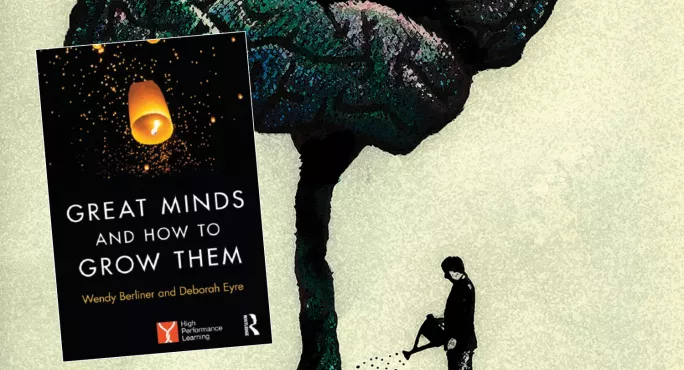- Home
- Book review: Great Minds and How to Grow Them
Book review: Great Minds and How to Grow Them

Great Minds and How to Grow Them
By Wendy Berliner and Deborah Eyre
Routledge
142pp, £14.99 paperback
ISBN 9781138284609
Although this book purports to be a “handbook for parents that shows how they can grow the minds of their children”, its real aim is more political. This is a book for Remainers, not Brexiteers; for Guardian readers, not Telegraph subscribers; for the metropolitan elite, not the provincial masses; for progressives, not traditionalists. As a parent and a teacher, I am not unsympathetic to some of the ideas Wendy Berliner and Deborah Eyre put forward. Even so, I found this book a frustrating read.
The problems begin before page one. In the dedication, the authors write that “this book is for our children who educated us more than we educated them”. How you respond to that will probably determine how you read the rest of this book. If you nod silently, saying to yourself how wise young minds are, and how resistant to change us teachers and parents are, then you’ll probably love every page. If, however, you wince a little, and question how exactly children are capable of “educating” their parents and teachers, then you will spend much of your time feeling patronised by the sweeping generalisations and irritated by the unproven ideas regaled as self-evident truths (who knew that “most children are natural-born scientists”?)
What is more worrying is the unsupported use of the “dazzling” research: yes, there are footnotes, but they are not numbered or indexed, leaving the reader unsure about where exactly certain statements are taken from, or how “true” they really are. “Evidence” in education is now used to silence questions, and that is itself anathema to learning. It’s not the only occasion that the authors do not practise what they preach.
The problem with having a fixed educational philosophy is that alternative views are rarely referred to. Even so, you would hope that instead of claiming “learning information is no longer enough - you can Google it”, Berliner and Eyre would have the curiosity they value so much and bring in voices, such as Daniel Willingham, to challenge this increasingly discredited but resilient nostrum. I have never met anyone in teaching or technology (including people who work at Google) who seriously believes that a search engine can act as some sort of outsourced brain that children can access to free up space in their real brains for the really cool stuff, like creativity and developing 21st-century skills (whatever they are).
Cultural capital
So, how do we grow great minds in our children? The answer, it seems, is simple: you talk to them and encourage them to ask questions. The authors are careful to avoid writing that, in essence, you grow great minds by being very middle class in possession of a significant amount of cultural capital (they reassure us at one point that a good education can be realised “even if you have to use a foodbank”), but it clearly helps.
It also helps if you live in a city because “cities are often better places to talk about toleration because they have multicultural elements”. Imagine the benighted lives those poor children have in unenlightened places, such as Devon or Dorset! These are places “where narrow views can take hold which sees anyone different as a frightening threat”. For the authors, it is “a privilege to live in multicultural societies…[and] our children need to know that”. But what if they and their parents question this, or reject such a political perspective?
The authors passionately believe in asking the right questions to further understanding, but they do not act on their own advice. Instead, they choose to base much of their claims about intelligence on Lewis Terman’s research, which is nearly a century old and, for them, flawed. But why not look at more recent work by behavioural geneticists, such as Robert Plomin, who are debating how much intelligence is inherited? Could it be because to do so might undermine their belief that “IQ isn’t that important”? Giving credence to such academic determinism could challenge their belief that “pretty much anyone can achieve highly” if they are simply given “favourable learning conditions”. For them, schools “should not be trying to find gifted and talented children”; instead, all children should be getting “advanced learning opportunities”. In other words, the comprehensive ideal, free from competition, selection or setting, recycled again using new nomenclature.
How this is funded and what such places look like remains at best vague and at worst an unreachable middle-class utopia. It is a place where all ideas are welcomed as equally valid, assuming, of course, that they do not diverge too much from the authors’ own (ironically) fixed mindsets.
David James is deputy head (academic) at Bryanston School. He tweets @drdavidajames
Keep reading for just £1 per month
You've reached your limit of free articles this month. Subscribe for £1 per month for three months and get:
- Unlimited access to all Tes magazine content
- Exclusive subscriber-only stories
- Award-winning email newsletters



